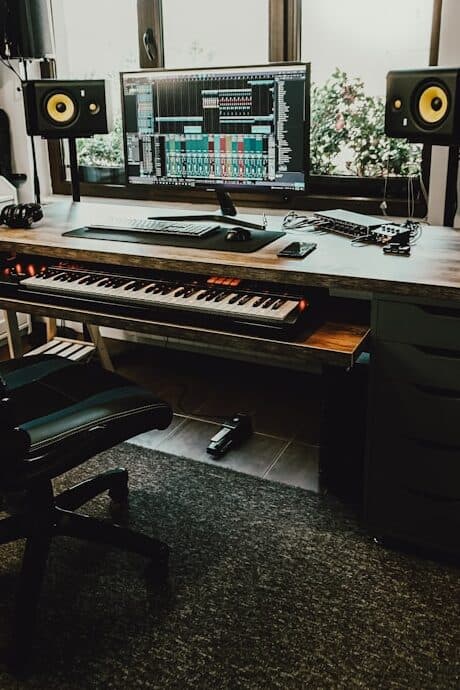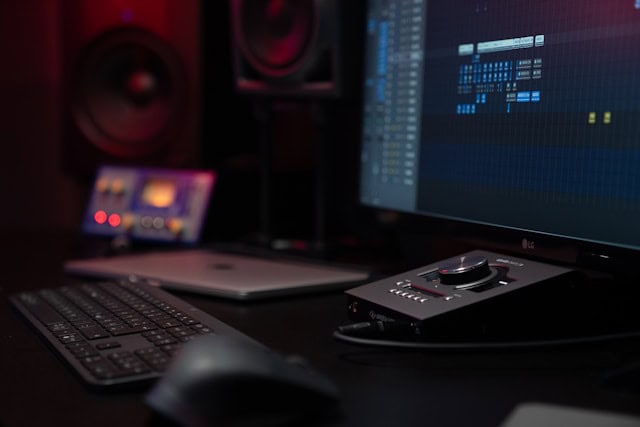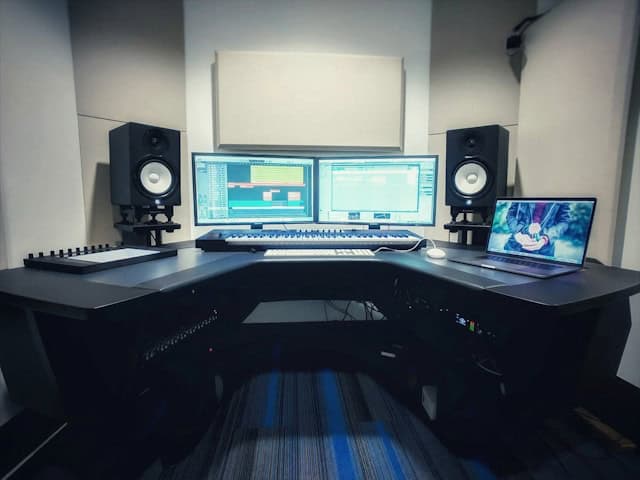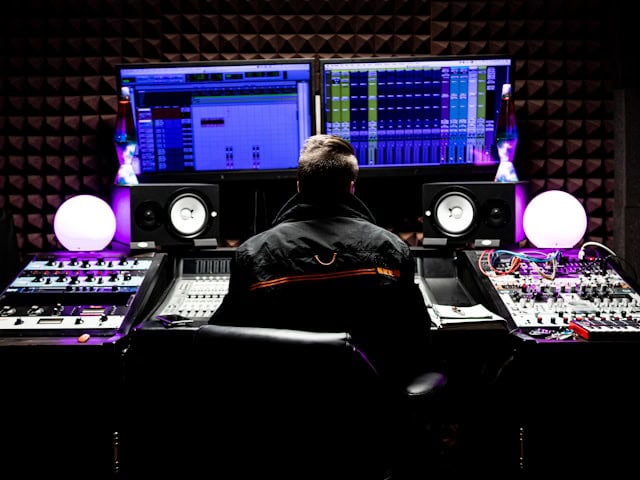The world of music production can be both thrilling and intimidating for beginners. You’ve got ideas bursting to come alive, but the technical aspects can feel overwhelming. Fear not, aspiring sonic architects! This post will equip you with the fundamental skills to transform your musical vision into reality.
Know Your DAW (Digital Audio Workstation):
Your DAW is your production playground. It’s where you’ll record, edit, and arrange your music. Popular options include Ableton Live, Logic Pro, and FL Studio. Spend time exploring the interface, learning the basic functions like recording, playback, and track editing. There are tons of free tutorials online to get you started.
Embrace the Power of Sound Design:

Even if you’re not a virtuoso musician, you can create incredible soundscapes. Most DAWs come with a library of samples and virtual instruments (VSTs) that allow you to craft everything from pounding drums to soaring synths. Experiment with different sounds, layering them to create unique textures.
Demystify Music Theory (the Fun Way):
Understanding basic music theory will unlock a whole new level of creativity. You don’t need to become a concert pianist, but grasp concepts like chords, scales, and key signatures. This knowledge will help you write stronger melodies, harmonies, and progressions. There are many interactive online resources and games that make learning music theory engaging.
Mixing is Magic (But Not the David Copperfield Kind):

Mixing is the art of balancing all the elements in your track – instruments, vocals, and effects – to create a cohesive and professional-sounding whole. Learn the core principles of EQ (equalization), compression, and panning. There are countless online resources that break down these concepts in an accessible way. Remember, mixing is as much about listening with your ears as it is about technical knowledge.
Less is More: Avoid the Production Pitfalls:
It’s tempting to overload your tracks with layers upon layers of sounds. But a cluttered mix will sound muddy and indistinct. Focus on creating space for each element to shine. Start with a clean foundation, add elements sparingly, and use effects judiciously.
Train Your Ears:

A producer’s most valuable tool is a well-trained ear. Actively listen to music across different genres, paying attention to how the elements are arranged and mixed. Reference tracks you admire to see how they achieve their sonic signature.
Don’t Be Afraid to Experiment:
Music production is a journey of exploration. Embrace the unexpected! Try unconventional techniques, push boundaries, and see what unique sounds you can create. Happy accidents often lead to sonic gold.
Finish What You Start:
It’s easy to get bogged down in the creative process. But developing the discipline to see projects through to completion is crucial. Set realistic goals, break down large tasks into smaller steps, and celebrate each milestone.
The Feedback Loop is Your Friend:
Share your work with trusted friends or online communities for constructive criticism. Be open to feedback, but also learn to trust your own creative instincts.
Enjoy the Process!
Music production should be a fun and rewarding experience. Don’t get discouraged by setbacks. Celebrate your victories, big and small, and keep learning and growing. With dedication and passion, you’ll be crafting chart-topping mixes in no time!
Recent Posts
The Synthwave Song Writing Start to Finish Guide: Getting That Warm, Analog Sound In the Box
If you’re making synthwave, you’ve probably fallen in love with the sound of the 1980s:Warm synths, punchy drums, saturated tape textures, and a glowing analog aesthetic that feels nostalgic and...
What’s the Most Frustrating Part of Making Music And How to Overcome It
Music creation can be one of the most rewarding forms of self-expression. But let’s be honest—it can also be maddening. That moment when inspiration strikes… only to be blocked by technical...

